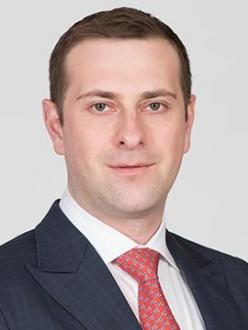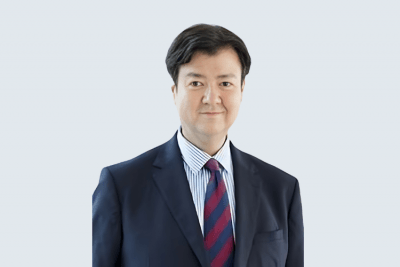Wealth Solutions & Wealth Planning
Future-Focused Family Offices – Challenges for Sponsors and Opportunities for the Wealth Industry

Dr. Silvio Struebi of Simon-Kucher Global Strategy Consultancy
Mar 22, 2023
Dr Silvio Struebi is Partner and Managing Director as well as Head of Banking for APAC global consultancy Simon-Kucher. Simon-Kucher has over 2000 experts worldwide including more than 200 specialists in Singapore, Hong Kong, Shanghai, Beijing, Tokyo, South Korea, Dubai, Sydney, and India. Their expertise covers a wide range of industries, including Financial Services, Wealth Management, Technology, Media and Telecoms, Consumer Goods, Healthcare and Life Sciences. Silvio gave the first presentation of the day at the Hubbis Family Office Forum 2023 in Singapore on February 9, an event that was exclusively sponsored by Eton Solutions. Silvio’s mission was to highlight the firm’s in-depth market study aimed at understanding the challenges and key needs of new Single Family Office sponsors setting up in Singapore. He said that the wealth management and professional services ecosystem needs to come together to help these founders navigate through to the best solutions, structures, and operations. This is best for the sponsors and their future generations. And this offers immense opportunity for the financial and professional service providers at large.
Armed with an excellent slide presentation, Silvio told delegates how they had interviewed more than 70 experts from private banks, EAMs, government agencies, IT service providers, SFOs and MFOs, family office founders, tax advisors, and others to pull together a report that would help them understand the challenges and key needs of new SFOs in Singapore.
“We believe we have covered the whole value chain and uncovered some key insights that we want to highlight to you today,” he states. “The insights focus on geographical ties of SFO sponsors, some of the pain points of setting up a SFO in Singapore, some of the hurdles in organising efficient day-to-day family office operations, as well as better ways for the ecosystem to better serve family offices.
Charting a course
Taking each of these topics one by one, Silvio reported that in order of scale, the top five originators of Singapore family offices are coming from China, Hong Kong, India, Taiwan and Indonesia. “This means it is a very heterogeneous clientele, and that also means diversity of needs, and there are also many touch points as they find their way to and then in Singapore,” he explained. “They may start with a private bank first, and then go on to a law firm, a trust company, and quite often, it is not entirely clear to them as to how to navigate and orchestrate this journey. This means there is real opportunity for all of us in this room to support them and guide them better in the future.”
He explained they minded down into the choice of Singapore and found that it is also far more than the immediate appeal of tax benefits and favourable regulatory conditions, as sponsors often have pre-existing business or personal connections to Singapore such as family ties or prior education.
Pulling the strands together
“And sponsors typically operate across multiple jurisdictions, with onshore and offshore wealth across liquid and illiquid assets in multiple entities and trust structures, leading to high complexity in accounting, legal, regulatory reporting, and so forth,” he explained. “That is why guiding them properly through this complex journey and coordinating the different elements are so important.”
Look beyond the immediate
Silvio reported that the study also aimed to drill down into key motivations, and priorities, and they found that often short-term goals dominate the sponsor’s mindset rather than longer-term goals. They found for example that tax structuring, residency benefits, and estate and wealth planning are more important than investment objectives, and more important than running the operation efficiently. However, they also found that effective family office operations and family governance were vital prerequisites for attaining the other key objectives.
“What actually became clear is that the key functions of family offices like investment management, wealth management, succession planning, are goals that are to be realised in the future, and that is where all of us in this room can really help,” he explained.
“There are accordingly immense opportunities for the Singapore-based advisory and wealth management ecosystem to truly add value.”
Getting it right
He noted that issues such as operational effectiveness, family governance and so forth are lower down in the list of initial areas of focus for the sponsors because they often do not fully appreciate the complexities that are involved, and they are focused initially on their key shorter-term goals.
“This means we all have a job in educating these sponsors and the broader ecosystem,” he said. “These sponsors need proper solutions and the right foundations for future success in their family offices. Solid implementation of family governance and adequate operations are critical to long-term success.”
Silvio then addressed the new for expertise, the quest for talent. Acquiring the right capabilities and talent are big hurdles, he reported. “The top pain points that SFOs face in incorporation are first access to knowledge on how to start a SFO, then recruitment of the right talent, and then getting the initial infrastructure properly set up,” he reported.
Plan properly from the outset
Starting a Family Office is a complex undertaking, he added, and founders need to plan for the future, not just for the inception. “You need a holistic project plan at the beginning, you need to understand how to properly stitch vendors or solutions together,” he said. “It’s important to to balance in-house and outsourced functions, you need to appreciate how to hire and then retain talent, and you need to know who you can trust to work with for advice and solutions. In short, it is a really big project to get to where they need to be. They need support from us, from the ecosystem.”
Many challenges
Silvio also highlighted the need to not underestimate what it takes to run an efficient SFO. He explained that key challenges include regulatory reporting requirements, talent, staffing, data management and gathering, and managing multiple vendors and outsourcing providers.
He elaborated on those comments. Fulfilling regulations and reporting obligations remains a challenge for SFOs, especially with MAS tightening FO rules. Manual data aggregation and poor data governance result in unnecessary risk exposure and potential cybersecurity threats. Combining various solutions results in higher coordination efforts and cost accumulation. Staff turnover coupled with rising labour cost will put more pressure on SFOs to acquire and retain talent.
He then pointed to the reality that SFOs will need a high degree of automation and interconnected solutions. Holistic wealth view is key to managing family wealth (across
bankable & non-bankable assets, jurisdictions, entities, and so forth), he explained. He noted that the aggregation of total costs (including bank fees) is often not available, even though cost control is crucial for an efficient management.
Automated data sharing is critical to drive timely decision making, risk management and capture of investment opportunities. He warned that manual processes and tasks with XLS are error-prone and highlighted the growing importance of cybersecurity solutions to avoid data leaks. And he concluded that these founders need a thoughtful selection of a close group of service providers to avoid unnecessary costs and inefficiencies.
Plant trees to reap their fruits
He closed his talk by concluding that sponsors need to look beyond incorporation and initial setup, they need to the right ecosystem partners to collaborate, to build integrated and interconnected solutions empowered by data, and they need to digitise manual family office processes and free up time for what really matters: harvesting investment opportunities and building the family office for the future and the family’s future generations.
“And therein lies the immense opportunity for all of us here today,” he stated. Remember the Chinese proverb that says the best time to plant a tree was 20 years ago, and the second-best time is now.”
More from Dr. Silvio Struebi, Simon-Kucher Global Strategy Consultancy
Strategy & Practice Management
Why are Most Digital Banks Not Profitable? Global Consulting Group Simon-Kucher Has Some Ideas
Strategy & Practice Management
The Future of Private Banking: Lessons from Big Tech Unicorns, Mainstream Media and Fintechs
Latest Articles






